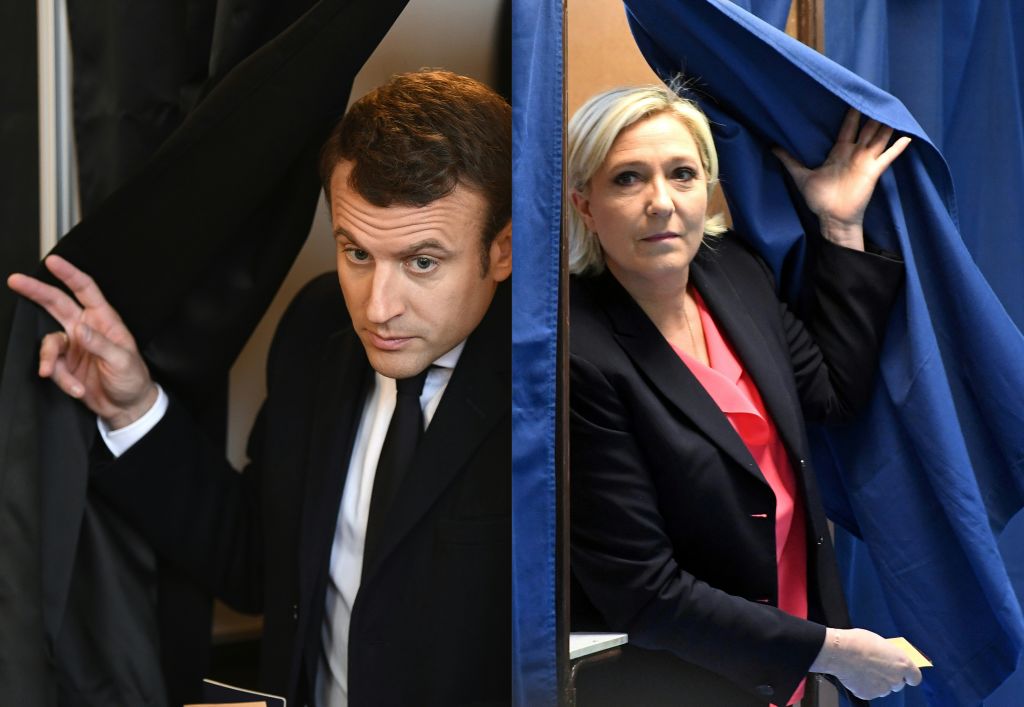It says much about Europe’s political establishment that Marine Le Pen has been charged over photographs she tweeted in 2015 to illustrate the barbarity of Isis. It was a stupid stunt of Le Pen’s, but not one worthy of prosecution and the political martyrdom that will ensue if she is convicted. Le Pen is facing the possibility of three years in prison and a fine of €75,000 (£66,000) because last year the European Parliament voted to strip her of immunity, thereby allowing a French judge to charge her with distributing “violent messages that incite terrorism or…seriously harm human dignity”.
Meanwhile, as politicians and lawmakers conspire to send Le Pen down for tweeting the photos, the people who did the killing have been able to set up home in Europe. Earlier this month, a 15-year-old Yazidi, who was an Isis sex slave, described how she had twice encountered her former captor on a German street. And in Normandy this year it was discovered that a 33-year-old Iraqi who had spent two years posing as a political refugee wasn’t quite what he seemed; he has since been charged with belonging to an Isis death squad that massacred 1,700 people in 2014.
Le Pen believes she’s the victim of a conspiracy. Last November, several banks closed her National Rally accounts (she called it a financial “fatwa”); and in July a judge blocked the payment of €2.35m in state subsidies to her party. The party is under investigation for alleged misuse of European parliamentary funds and the decision to withhold the grant leaves the National Rally impoverished. “The investigating judges are applying a death sentence by confiscating our public grant without a court judgement,” she told reporters, adding that the party “will be dead by August”.
But they’re not. Far from it. Last weekend, the French tabloid, Le Parisien, described Le Pen as “galvanised and on the up”. The party remains indigent, although a call for contributions from the public has already brought in €600,000 (£540,000), and more will be raised at the end of September when the National Rally holds its first bleu-blanc-rouge [BBR] fête in more than a decade. Launched by Jean-Marie Le Pen in 1981 as an alternative to the left-wing Fête de l’Humanité, the BBR event was dropped by his daughter as part of her drive to “de-demonise” the party. But with that strategy now abandoned, Le Pen is reviving the BBR fête to raise funds and also reconnect with her grassroot supporters, many of whom were angered when she tried to rebrand the party.
The principal reason for the spring in Le Pen’s step is what has become known as the “Benalla affair”, the revelation last month that Macron’s head of security had been moonlighting as a thug and beating up protestors at a May Day rally. The moral high ground is no longer occupied by the president, not just because of Benalla’s actions but also the mendacity of his spin doctors as they tried to distance their boss from the scandal.
That, allied to her claims of victimisation, has enabled Le Pen to paint a picture of a bullying regime out to silence its critics by any means. “In France in 2018 they ruin or beat up political opponents, making them fearful of losing their job or depriving them of their bank account,” she tweeted at the end of July. “Are we still in a democracy?”
The Benalla scandal has been a godsend for Le Pen, who for a year after her election defeat was a politician without purpose. Now she is set on revenge and the first opportunity to hurt the president will be in May’s European elections. She has been working on her campaign strategy over the summer and her first visit of the new political season will be to an agricultural fair in Châlons-en-Champagne in early September. “We have a constant interest in farming matters,” explained Philippe Olivier, Le Pen’s strategist. “Farmers are the first to be left in despair by the EU’s decisions.”
The second visit will be in Frejus on the Côte d’Azur where Le Pen’s main theme will be immigration, seen by the right as Macron’s Achilles heel. The migrant camps in Paris keep growing, the clashes in Calais between migrants and police continue, and the images from Spain this summer of migrants forcing their way into Europe by climbing fences and throwing battery acid at border guards strengthen Le Pen’s hand.
There is a growing feeling that Macron is just another chip off the Brussels block when it comes to immigration, a leader who talks tough but does nothing to address the deepening crisis. In a radio interview this week, Gilles Platret, a spokesman for the centre-right Les Républicains, challenged the president to start taking action on immigration: “The truth is that today the country is facing an urgent situation…Macron can’t remain in a state of ambiguity forever”. The longer that he does the easier it will be for Le Pen to portray the president as weak and helpless.
Le Pen may be a third-rate debater but she is a first-rate fighter and it appears that Europe’s political establishment is no closer to ridding itself of this turbulent populist.







Comments